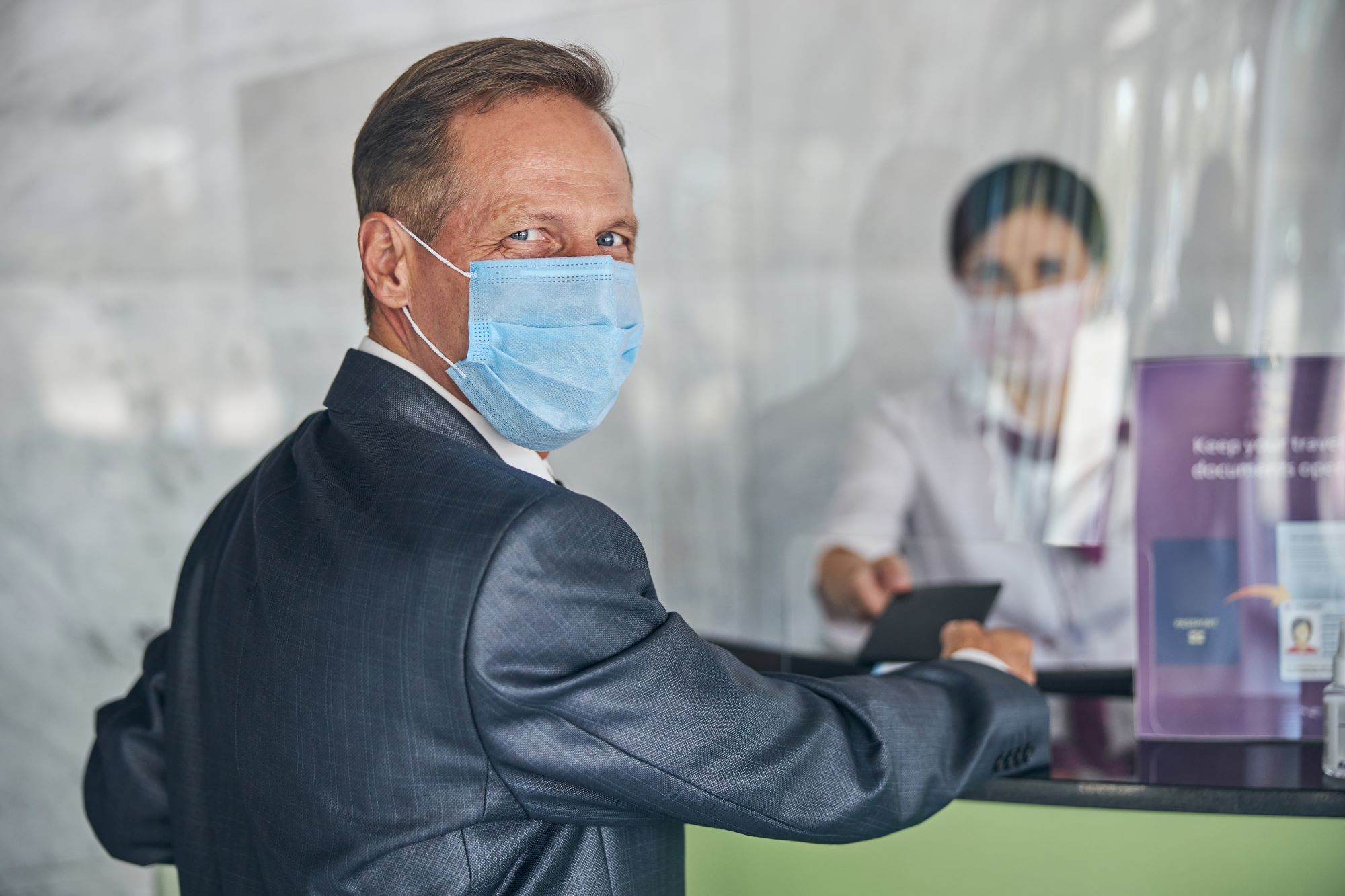B.C. hotels are using touchless check-in technology, enhanced cleaning procedures, and other safety solutions for workers and guests.

Photo credit: iStock.com/Svitlana Hulko
Touchless or contact-free technology has been around for many years, but it’s become more beneficial than ever during the COVID-19 pandemic, particularly for the accommodation industry.
“A couple of years ago, industry was talking about touchless check-in, but many people felt it was not personal enough,” says Ingrid Jarrett, president and CEO of the BC Hotel Association.
The pandemic has increased acceptance, and the technology has been adopted to limit physical contact in places such as airports and, notably, hotels.
Ingrid spoke with me about some of the changes guests might notice once they arrive at their accommodation. They wait (if necessary) while maintaining physical distance from others, then provide their reservation details to masked hotel workers behind plexiglass. Guests can sign in and pay by tapping their credit or debit card. They get sanitized key cards for their room. In some cases, they sign check-in forms using sterilized pens.
Visible cleaning
Cleanliness has always been an important part of hotel service; now, it’s enhanced and more visible. Hotels are posting cleaning checklists in elevators, washrooms, and other public spaces.
“Within accommodations, the skill of cleaning was always something that happened behind the scenes or while guests were sleeping,” Ingrid says. “Now, consumers want to know exactly what hotels are doing to protect guests. They want to be assured that everything is being sterilized and cleaned.”
Rooms are deep-cleaned before a new guest arrives. (Choosing safe and effective cleaning products is one of many topics covered in the COVID-19 health and safety: Cleaning and disinfecting information sheet from WorkSafeBC.)
Safety for staff
“Employees are the single most important thing to any hotel. Employers are doing everything they can to protect and support them,” Ingrid says.
Extra shampoo, soap, and other amenities are left in rooms or are available for delivery, as cleaning staff no longer go into the rooms for turn-down service. When guests order room service, workers leave their food outside the door. (In the past, in some hotels, workers entered guests’ rooms to serve meals.)
In accordance with current provincial health orders, all staff and guests must wear masks in indoor public areas. And, of course, there are hand-sanitizing stations in multiple locations.
Resources to help keep travel safe
WorkSafeBC offers comprehensive guidance for the accommodation industry, including hotels, motels, backcountry operators, lodges, RV parks, cabins, and hostels.
In addition, the BC Hotel Association and go2HR have developed a COVID-19-focused Tourism & Hospitality Best Practices Guide. “These best practices show you how to be sure you’re putting the safety of workers, employers, and guests first,” says Ingrid.
For the latest information on travel restrictions and preventing COVID-19 transmission in hotels, see Hotels and tourism from the BC Centre for Disease Control.


